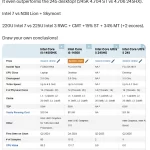The United Nations has warned that recent cuts to global health aid could reverse progress in reducing maternal deaths.
A new UN report released to mark the 2025 World Health Day shows a 40 per cent global decline in maternal deaths between 2000 and 2023, which was attributed to improved access to essential health services.
However, the report titled Trends in maternal mortality warned that humanitarian funding cuts are now threatening to reverse the progress made over two decades.
It revealed that an estimated 260,000 women died from pregnancy and childbirth-related complications in 2023, averaging one death every two minutes.
Recently, the WHO also warned that abrupt cuts in global health funding are threatening progress in the fight against Tuberculosis (TB), the world’s deadliest infectious disease.
World Health Day is marked annually on 7 April. This year’s campaign focuses on improving maternal and newborn health and survival with the theme, “Healthy beginnings, hopeful futures”.
Progress slowing
While there have been significant improvements, the UN agencies highlighted that the pace of progress has slowed since 2016.
It explained that maternal mortality stagnated in five world regions after 2015, including Latin America and the Caribbean, Eastern and South-Eastern Asia, Europe, and North America.
Sub-Saharan Africa made significant gains but still accounted for approximately 70 per cent of global maternal deaths last year, attributed to fragile health systems, poverty, and conflict.
According to the Executive Director of the UN Population Fund (UNFPA), Natalia Kanem, access to quality maternal health services “is a right, not a privilege, and we all share the urgent responsibility to build well-resourced health systems that safeguard the life of every pregnant woman and newborn.”
UNICEF Executive Director Catherine Russell also warned that global funding cuts are putting more women at risk.
Ms Russell said that mother and baby are often lost to preventable causes.
“The world must urgently invest in midwives, nurses, and community health workers to ensure every mother and baby has a chance to survive and thrive,” she said.
According to the report, pregnant women in fragile and conflict-affected countries face the highest risks, noting that nearly two-thirds of maternal deaths now occur in such settings.
“A 15-year-old girl faces a one in 51 risk of dying from a maternal cause at some point over her lifetime compared to one in 593 in more stable countries. The highest risks are in Chad and the Central African Republic (one in 24), followed by Nigeria (one in 25), Somalia (one in 30), and Afghanistan (one in 40),” it noted.
Impact of COVID-19, aid cuts
The report also highlighted the impact of the COVID-19 pandemic. In 2021, maternal deaths rose to an estimated 322,000 from 282,000 in 2020, an increase of about 40,000.
The spike was linked to direct complications from COVID-19 and the widespread disruption of maternity services.
In his comments, WHO Director-General Tedros Ghebreyesus said the UN report shows “glimmers of hope.”
Mr Ghebreyesus noted that the data also highlights how dangerous pregnancy still is in much of the world today despite existing solutions to prevent and treat the complications that cause the vast majority of maternal deaths.
“In addition to ensuring access to quality maternity care, it will be critical to strengthen the underlying health and reproductive rights of women and girls – factors that underpin their prospects of healthy outcomes during pregnancy and beyond,” he noted.
In January, shortly after his inauguration, US President Donald Trump signed an executive order withdrawing the country from the WHO, citing political influence within the agency.
Mr Trump also paused all foreign aid assistance, which has affected most health programmes in developing countries, including Nigeria.
Global targets
The UN says targeted investments are urgently needed to strengthen supply chains, expand the midwifery workforce, and increase access to essential medicines, such as treatments for haemorrhage, pre-eclampsia and malaria, the leading causes of maternal deaths.
The report also calls for wider access to family planning, education for girls, and resources to help women manage their health before, during, and after pregnancy.
READ ALSO: Nigeria reacts to Trumps tariffs, avoids retaliation
According to the UN, the world is currently off-track to meet the Sustainable Development Goal (SDG) target for maternal survival by 2030.
“Globally, the maternal mortality ratio would need to fall by around 15 per cent each year to meet the 2030 target – significantly increasing from current annual rates of decline of around 1.5 per cent,” it added.
Support PREMIUM TIMES’ journalism of integrity and credibility
At Premium Times, we firmly believe in the importance of high-quality journalism. Recognizing that not everyone can afford costly news subscriptions, we are dedicated to delivering meticulously researched, fact-checked news that remains freely accessible to all.
Whether you turn to Premium Times for daily updates, in-depth investigations into pressing national issues, or entertaining trending stories, we value your readership.
It’s essential to acknowledge that news production incurs expenses, and we take pride in never placing our stories behind a prohibitive paywall.
Would you consider supporting us with a modest contribution on a monthly basis to help maintain our commitment to free, accessible news?
Make Contribution
TEXT AD: Call Willie – +2348098788999
© Premium Times








